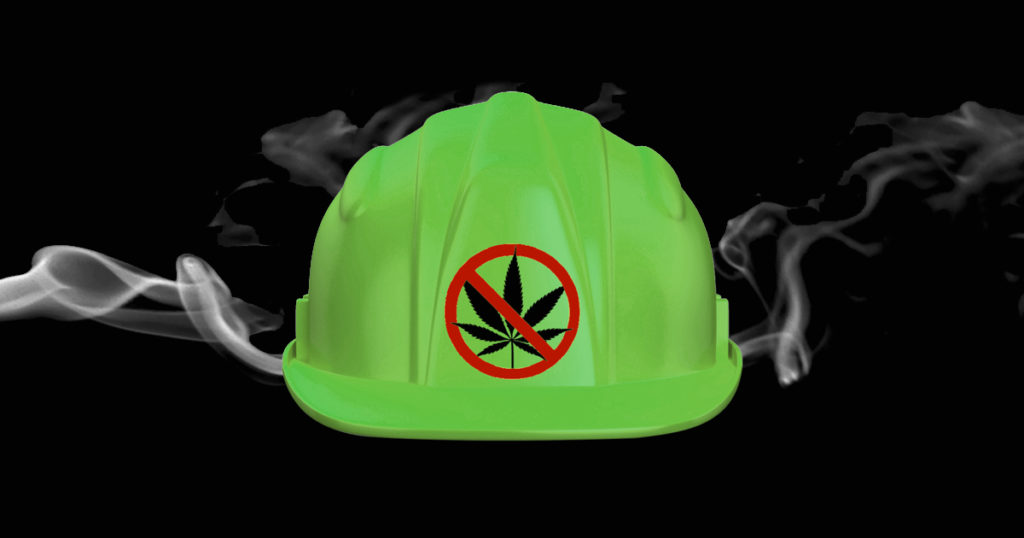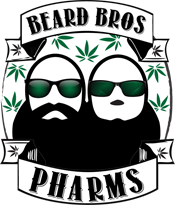
There is a common phrase used not only in the cannabis industry but throughout the culture, to describe the act of taking a smoke break with friends or co-workers – the Safety Meeting.
I’m not sure how you like to sesh but our standard “Safety Meeting” typically involves zero discussion of wet floors, or tripping hazards, or locating the nearest eyewash station, and instead tends to focus on culture preservation, terp talk, and lots of laughs. Even with our tolerance currently residing at astronomical levels, nobody on our crew would think to spark up a bowl or a blunt right before performing some work task or dangerous duty that could risk our lives or our friends’ lives. But even if we hadn’t taken a toke in several days, the residual buildup of cannabinoids in our system would likely flag us as being “under the influence” of cannabis.
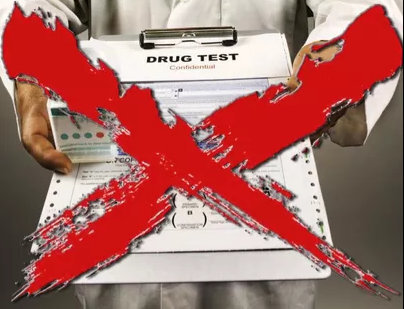
As more states hop on board with cannabis legalization, especially those states that have taken the next leap to regulate the recreational use of the plant, employers in those states are struggling with how to vet potential new employees and how to keep tabs on their current ones when it comes to cannabis use.
In June of this year, Nevada became the first state in the country to explicitly ban pre-employment screening or testing for cannabis use now that they are two years into their own rec weed market experience. This employment law will not take effect until January of 2020 but it has already inspired other regions of the nation to explore similar protections.
Sounds great, right? This is why we “legalized weed”…right??
NOT SO FAST…
In the fine print of the Nevada drug screening law, you’ll find that the new change in the law will not apply to EMTs, firefighters, or anyone who drives a vehicle for a living. They will still be second class citizens. The new law loses virtually all of its teeth by allowing employers to reject any potential new hire based solely on the presence of cannabis in the urinalysis testing if the employer deems that the new employee’s cannabis usage could somehow, in any way conceivable to the human mind, put their co-worker’s safety at risk.
Oh, so we’re right back where we started, and this is in one of the most progressive states and cannabis markets in the country.
I know we may sound like a broken record at times but one of the most rudimentary facts about weed is that one puff can stay in your system for a month or more. In a state where it is perfectly legal for an adult to take that puff, restricting access to employment based on that alone (yet ignoring truly dangerous drunks, barely functional pill-heads, and chain cigarette smokers) should be against the law.
To leave it up to each individual employer is ludicrous. It is literally where we are now and it’s simply not fair. I can think of an almost endless list of jobs where I would agree that nobody should be smoking weed while actually doing the job in question but I cannot think of one job that justifies restricting adults from taking in cannabinoids on their own time. Cops, judges, politicians… they’d all be way cooler if they did!
STOP YANKIN’ MY PLANK, BOSS
There are a dozen or so foundational concepts that must be included in any cannabis reform effort to make it legit, fundamental planks like: the freedom to grow your own cannabis, the implementation of social equity programs, criminal justice reform and record expungements, the right to consume in designated public spaces, protections for motorists, and more, but ending employer discrimination is right up there as well.
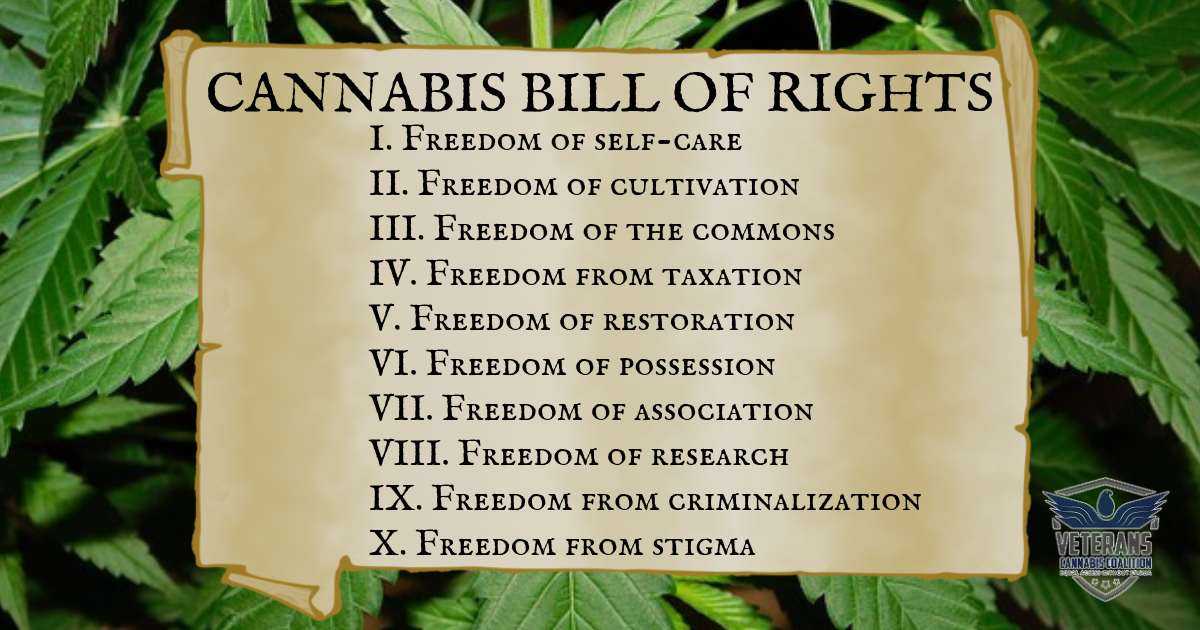
The fact that cannabis remains in your system for so long is really almost as much of a blessing as it is a curse, as it makes it nearly impossible for anyone to prove exactly when you got baked. This should provide cover for cannabis consumers and honestly, it should have been the final nail in the coffin for drug testing for weed.
Nevada, California, Colorado… none of them should have passed recreational cannabis laws that did not have employee protections chiseled deeply into them, but they did and now we have to play defense while trying to push for further reform.
A policy position paper released just yesterday by the National Safety Council (NSC) is definitely not going to help our efforts either, as it paints a grim picture of how bosses allegedly view employee cannabis use and presents a “solution” that, if applied, could have long-lasting and negative repercussions for hundreds of thousands of law-abiding cannabis users across the country.
In the report, the NSC advises all employers to openly discriminate against cannabis users in legal markets by refusing to hire them for any “safety sensitive” jobs. The agency acknowledges that the level of THC present in a person’s body does not necessarily correlate to a level of impairment but then they take a hard turn into Prohibitionville by stating, “At this time, NSC believes there is no level of cannabis use that is safe or acceptable for employees who work in safety sensitive positions.”
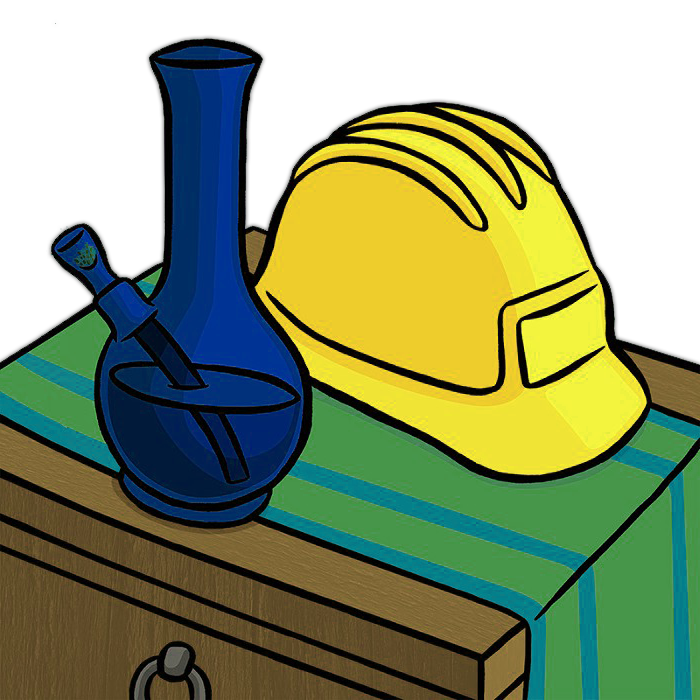
According to a survey conducted earlier this year by the NSC, they claim that 81% of employers have concerns about the negative impact of cannabis use in their workplace.
Ripped right from their report (emphasis ours): “Studies have shown that those under the influence of cannabis can experience impaired body movement, altered senses, difficulty with thinking and problem-solving, impaired memory, an altered sense of time, changes in mood, and – when taken in high doses – hallucinations and delusions. Physical effects can include difficulty breathing and increased heart rate. These effects can lead to deadly consequences for those working in safety sensitive positions and those around them. NSC supports moving employees to non-safety sensitive operational positions when using cannabis for medical purposes.”
Of course, their own survey showed that only 7% of employers said that they would consider moving an employee to a safer duty or task if they were suspected of being cannabis consumers. Gee, thanks, boss.
Can you imagine if you had been at your job for years and one day your boss called you into his or her office and said something like, “We know you had a beer while out on your date three Thursday nights ago and we don’t think that you can be trusted with such a safety sensitive position so we’ll just have to let you go.”
The NSC paper shamelessly cites a claim that “Marijuana is the most frequently used illicit drug of abuse in the U.S.” when they specifically advise employers in LEGAL MARKETS to discriminate against LEGAL consumers. The fact is, nationally only about 2.8% of urine-based workplace drug screenings tested positively for weed in 2018. It’s just not a significant issue and it certainly does not warrant such a kneejerk response.
This issue overlaps quite a bit with motorists’ rights as well. The same concept applies – is it safe to drive with cannabis in your system? Of course it is. Is it safe to drive in the snow five minutes after you take the first dab of your life? Of course it isn’t. But we cannot revolve the law of the land around the latter scenario. For the vast, vast majority of cannabis consuming motorists, almost no level of cannabinoid saturation will really affect their driving. So that is all we ask – judge us by our driving. We have hundreds of traffic laws so, by all means, hold us all accountable to those but no you cannot swab my mouth or sniff my piss.

It’s the same with employment. Judge the employee on their punctuality and work ethic, their ability to complete the task at hand, and their compliance with company policies – PERIOD. Don’t want your employees smoking pot while at work? Fine, make it a rule. Ban it from your private property. But as soon as you start telling us that we cannot even do it on our day off, on our private property, you’ve violated our sovereign rights and any state-level government that is happily raking in weed-related tax revenues has an obligation to stand up for those rights on our behalf. Will they? Hell no, not unless we keep rattling their cages about it and that’s what we plan to do.
It should be noted that the National Safety Council is not a government agency. They are a 501(c)(3) “non-profit” organization that was founded in 1913 and serves essentially as an advisory committee with over 55,000 members made up of both businesses and individuals. Although they do not play a direct role in the crafting of laws, they do hold an undue amount of influence with state and national level lawmakers and the name/acronym implies more authority than they actually have, which benefits those who agree with their stances. They do not get hired to point out things that are safe, they get hired to raise red flags and that is a bit of a conflict of interest in and of itself in our opinion. Their bias against cannabis should be considered anytime they make a headline about it as you can be sure that they will surface again every time we try to fight for employee and motorist rights for law-abiding cannabis consumers. Anytime a prohibitionist runs some anti-cannabis smack at you by citing the NSC, ask them what they know about the organization and you’ll likely find an awfully shallow puddle of knowledge.
Keep updated on all the latest news and updates in the Cannabis industry here at Beard Bros Pharms by signing for our Friday Sesh Newsletter here. Always Dank and Never Spam!



